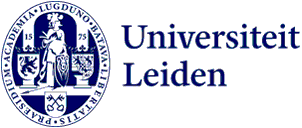
Surrogacy processes identified by Leiden University
How many children are born with the help of a surrogate mother in the Netherlands, and which legal obstacles can arise? Through a new interdisciplinary study, researchers at Leiden University are attempting to provide clarity about surrogacy processes.
For many people, conceiving a baby is not an easy process. Surrogacy can be a solution for homosexual couples and people with fertility problems. Demand for surrogate mothers is expected to rise following the cabinet’s introduction of a ban on foreign adoption in May 2024.
But how many people use this process to conceive a child? For the first time, research conducted by Leiden University has identified how many Dutch children are being born with the help of a surrogate. The researchers involved estimate that this occurs between 30 and 50 times per year. More details about the surrogacy process have also come to light, providing clarity on the practices and experiences of surrogate mothers and commissioning parents.
Assistant Professor of Family and Child Law Kartica van der Zon (Leiden Law School) and Assistant Professor of Forensic Family and Youth Care Studies Daisy Smeets (Social and Behavioural Sciences) worked on this project. One of the research questions focused on the legal challenges associated with surrogacy. For example, commissioning parents often have to wait a long time before legal guardianship of the child is transferred from the surrogate mother to the commissioning parents. Before this happens, they are not permitted to make any medical or other decisions about the child. If the child was born abroad, they often only receive Dutch nationality once all Dutch legal procedures have happened. Until then, the child is considered a foreign national.
Many commissioning parents travel abroad, where they pay high fees to intermediaries in surrogacy processes (this is banned in the Netherlands). There are also significant concerns about the child’s right to information about their parentage, as they may not be able to find out the identities of their biological parents.
Many of these issues can be put down to a lack of regulations, which has both practical and ethical implications. Since the law does not provide guidance, those involved are forced to weigh up complex ethical factors. In practice, there are significant differences in how these ethical considerations are interpreted. The Dutch Council of State has previously deliberated on a surrogacy bill that would regulate the implications of surrogacy on parentage law. The process showed that there was not enough information available about the practice, and it was for this reason that the research project was set up. One of the findings of the research is that while more regulations are desirable, the current bill does not adequately factor in the potential risks for the surrogate mother, child and commissioning parents.
The report by Leiden University (in Dutch only), entitled ‘Het gedragen kind’ [literally meaning ‘The carried child’], was sent to the Dutch House of Representatives on 17 October 2024.
More information about this study is provided in the interview (in Dutch) with Dr Kartica van der Zon in Dutch daily newspaper Trouw.
Read the news item on the website of the Research and Data Centre (WODC) here.
